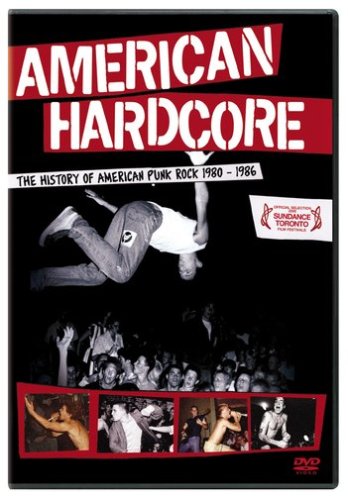
directed by Paul Rachman
During the late 1970’s through the mid-80’s, the U.S. was awaiting answers from the newly elected President Ronald Reagan to solve their economy woes after a wimpy term in office by Jimmy Stewart left this country wanting more answers for their unemployment and hunger for a better life. Through “Reaganomics,” it built the U.S. confidence in our “brand” on the world and made people embrace a safe lifestyle in the 80’s filled with excess and homogenized thinking patterns in pop culture, music, and the general lifestyle goals.
Thankfully, the independently minded youth of that era were banding together against normality and needed a way to express their boredom, discontent, and frustration with social norms, like the hippies before them. Because of the safe nature of most music during this time, however, these new bands were embracing energy over poetry, improvisation over carefully rehearsed set lists, and passion as a group more than how many records they might sell. The members and the bands felt like a minority, so they fought back against the majority with fast, angry soulful songs with alternative messages to the ones they were being sold by society around them. They mixed messages on purpose to challenge their audiences who seemed to be picking up trends instead of listening to the intention in their lyrics.
Throughout this recollection of the times for this documentary, multiple band members were interviewed about their experiences, as well as various graphic artists, producers, managers, record stores owners, record keepers, and scenesters. Major influential bands were given respect for longer segments throughout the doc, most notably TSOL, Black Flag, Bad Brains, Minor Threat, and SSD. Their varying degrees of messages and wildly different frontmen and their violent participation with the crowd…everything just copied each other in various cities until the movement was a full-fledged genre of music and culture. Bands would pick up the violent stage diving and slam dancing in Los Angeles and play to a new crowd in Washington DC, unaware of their new dance style, but little by little, the trends became a norm, so it was up to individual bands to shake things up. The band Flipper had their style apart from the norm, which audiences hated. Minor Threat sang for kids who were tired of every band singing and promoting about getting high everyday. MDC’s frontman wanted to be the weirdest individual in the venue he played at, every show. TSOL’s frontman would dress in full drag and still be able to throw down on any crowd member who called him a “fag.”
I always found it interesting how one side of the nation seems to have a different style of creating a name for themselves in the movement, yet they all end up sounding and acting relatively similar. The black and white posters. The boots. The tough, skinny image. The belief that when the band’s crappy equipment burns out, it’s impressive to the audience that they could play “that hard.” But the ethos that drove the entire hardcore movement was mentioned in the documentary: the DIY work ethic. Nothing existed at the time other than these musical groups and their thoughts and their determination to create something out of their translation of the baggage of being young in a nation that doesn’t speak for you, being terrified of their future, and wanting to expel that energy just to get it out there, not to become famous. Obviously, they could’ve easily turned down their passionate urges for something more mediocre, but they chose a harder existence and through it, they created an era in music that spawns a slew of ideas and hope for the next wave of music.
I see this time that we’re in, after we just elected a pathetic excuse for a presidential nominee, Donald Trump, into office (in the last week before writing this), to be the perfect time to remember eras such as this for the arts and protesting and standing up for others and yourself when you cannot get heard by the majority of voters. DIY. If something doesn’t exist, do it yourself. Make it yourself and fear not about the repercussions because you create the stories that impress upon your future. If you could hear the same story out of the majority of people, life is pretty bland and forgetful after a while, in my opinion. These artists remind me of this.
9/10 punches to the head from Henry Rollins